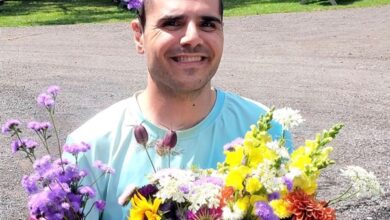People with disabilities most likely to experience discrimination in healthcare and social settings according to community survey

In its “State of Hate in Greater Rochester” community survey, the Levine Center to End Hate found that the most common places for people with disabilities to feel discrimination are within the healthcare system (51%) and when shopping or eating (51%). For the sake of this community survey, a person with a disability is defined as someone who faces challenges with mobility, cognitive/intellectual reasoning, mental health, or visual/speech impairment. Those who identify as deaf or hard of hearing will be covered in a future release.
“Too often, people with disabilities are excluded in discussions of communal equity,” says Levine Center Executive Director Karen Elam. “37% of respondents with disabilities have personally experienced discrimination. As long as that number is higher than zero, there is work to be done.”
Additionally 34% of respondents with a disability have felt unsafe because of their disability, most commonly when shopping or eating. “It is disturbing that people with disabilities in our community would feel unsafe while trying to enjoy daily social activities that many of us take for granted,” says Elam. “We’re interested in learning more about why this is happening and what we can do as a community to address it.”
Outside of Jewish and white respondents, people who have a disability were the largest subgroup of respondents for the Levine Center’s “State of Hate” survey. While a majority (70%) of respondents with disabilities feel that Rochester is mostly a welcoming place for people of all backgrounds, this is still lower than overall average from all respondents, 81% of whom agreed.
When responding to the question, do you feel that the level of discrimination will increase, decrease, or stay the same, a 72% majority of respondents with disabilities feel that it will stay the same. “We want to address these concerns from people with disabilities in our future programming at the Levine Center to End Hate,” says Elam. “There are very real concerns from this community.”
“Results like this are why we started this survey in the first place,” continues Elam. “Ending hate is a broad and ambitious goal. Going directly to our community and asking people about these issues will help us navigate the best issues to address going forward.”
This first “State of Hate in Greater Rochester” survey serves to establish a baseline of attitudes, perceptions, and experiences of discrimination and bias among residents of the area. The survey will be repeated in the future to evaluate local efforts at addressing hate.
Survey content was developed by Causewave Community Partners and Crux Research in consultation with the Levine Center to End Hate at the Jewish Federation of Greater Rochester. BRX Research assisted in data collection. The survey comprised a representative sample of 1,090 community respondents from a nine-county Greater Rochester area. All respondents were aged 18 and over and came from a variety of religious backgrounds and a range of educational backgrounds and household incomes. Quotas were maintained by gender, age, and race/ethnicity. The data seek to be representative of adults living in the Greater Rochester area.
The full report can be found at http://endhateroc.org/community-survey
Provided information





